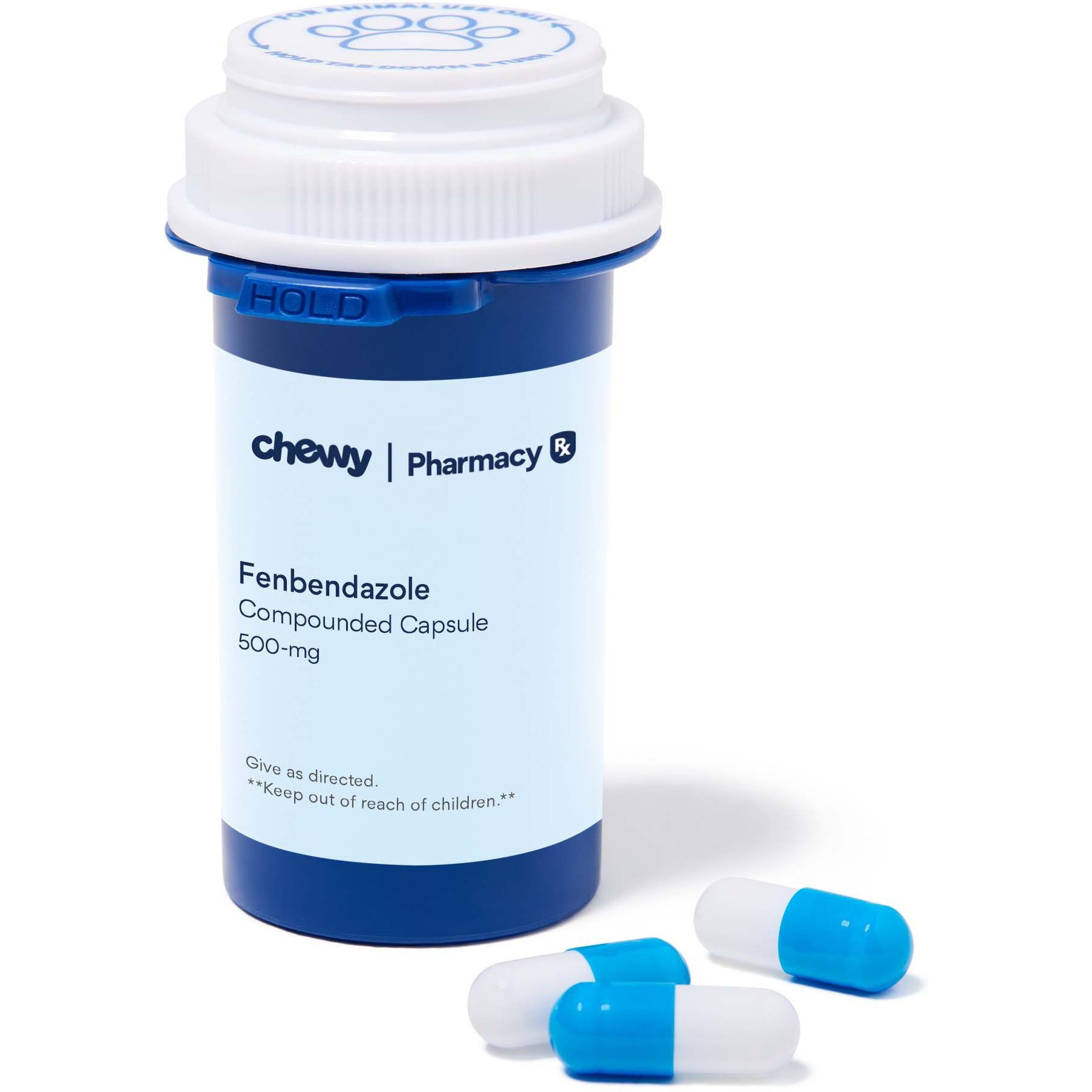fenbendazole: Future Research in Veterinary Oncology and Beyond
Wiki Article
Recognizing the Advantages and Uses of Fenbendazole in Veterinary Medication
Fenbendazole has established itself as a crucial anthelmintic in veterinary medication. Its capacity to target numerous parasitical infections makes it an important tool for vets. The drug's system disrupts necessary mobile procedures in bloodsuckers, leading to efficient therapy end results. Its safety profile differs between species, necessitating careful consideration in its use (222 mg). Understanding these characteristics can shed light on fenbendazole's broader implications in vet care and ongoing study into its prospective beyond standard applicationsDevice of Action of Fenbendazole

Usual Parasitic Infections Dealt With With Fenbendazole
A selection of parasitic infections are properly treated with fenbendazole, making it a functional alternative in vet medication. This anthelmintic agent is especially reliable versus nematodes, consisting of roundworms and hookworms, which generally influence pets and cats. It is additionally used for the therapy of cestodes, such as tapeworms, giving a broad spectrum of activity against both kinds of digestive tract parasites. Additionally, fenbendazole is helpful in managing infections caused by protozoa, particularly Giardia, which can lead to stomach distress in animals. Its efficacy includes treating particular lungworms in pooches and felines, addressing respiratory wellness concerns connected to these bloodsuckers. In general, fenbendazole's capacity to target several parasitical types makes it a useful device in vet method, making certain the wellness and health of pet dogs impacted by these usual infections.Safety and security and Efficacy in Different Animal Species
The safety and security and efficiency of fenbendazole differ amongst different pet varieties, emphasizing the significance of species-specific considerations in vet medicine. In dogs, fenbendazole is typically well-tolerated and effective versus a variety of stomach parasites, including roundworms and hookworms. For felines, nevertheless, its usage is less common and may call for cautious application because of potential adverse reactions.In livestock, such as cattle and lamb, fenbendazole shows performance against different endoparasites, adding to enhanced health and wellness and efficiency. The pharmacokinetics and potential side effects can vary substantially between varieties, demanding cautious evaluation by veterinarians.
Horses likewise respond positively to fenbendazole, specifically for dealing with strongyles and ascarids, though dosage and administration paths should be tailored to their distinct physiology. As a result, recognizing these differences is vital for optimizing treatment outcomes and making certain pet well-being throughout varied varieties.
Management and Dose Standards
Appropriate management and dose standards are crucial for making the most of the healing results of fenbendazole while minimizing prospective adverse effects. The dose usually differs depending upon the species being dealt with, the details condition, and the formulation of fenbendazole used. fenbendazole. For canines and cats, an usual dosage is 50 mg/kg body weight, carried out daily for 3 consecutive days, however vets might readjust this based upon private health analysesIt is essential to provide fenbendazole with food to improve absorption and reduce gastrointestinal trouble. The medication is available in various kinds, consisting of granules and paste, permitting flexible administration alternatives. Keeping track of the animal's feedback throughout and after treatment is recommended to confirm efficacy and safety and security. In addition, veterinary assistance is essential to establish the ideal duration of treatment based on the kind of parasitic infection being resolved, assuring perfect end results for the animal's health and wellness.
Future Point Of Views and Research on Fenbendazole
Research study on fenbendazole continues to advance, concentrating on its prospective applications past traditional antiparasitic uses. Recent researches have actually discovered its performance in treating various forms of cancer cells, specifically in vet oncology. Initial information recommend that fenbendazole may hinder the development of lump cells and improve the impacts of other chemotherapeutic representatives.Scientists are exploring its function in managing gastrointestinal disorders in animals, highlighting its anti-inflammatory homes. The adaptability of fenbendazole for various types increases questions about its safety and security profiles and suitable application regimens in varied populaces.
As rate of interest grows, there is a demand for extensive scientific trials to develop fenbendazole capsules evidence-based guidelines for these novel applications. Future study may also check out the mechanisms behind fenbendazole's effects, potentially leading the way for ingenious restorative approaches in veterinary medicine. The recurring expedition of fenbendazole could substantially enhance treatment choices for different vet conditions.

Regularly Asked Questions
Is Fenbendazole Safe for Pregnant Animals?
The safety and security of fenbendazole for pregnant animals continues to be uncertain. While some researches recommend very little danger, vets commonly recommend care and usually discourage its usage while pregnant unless the benefits plainly surpass potential dangers.Can Fenbendazole Be Utilized in Livestock?
Fenbendazole is frequently used in livestock to treat numerous parasitical infections. 222 mg. Its effectiveness against stomach worms makes it an important anthelmintic, adding to improved wellness and performance in animals elevated for food and fiberWhat Are the Negative Effects of Fenbendazole?

The side results of fenbendazole might include intestinal disruptions, lethargy, and allergies. In rare instances, more extreme reactions can occur, necessitating mindful tracking and consultation with a vet throughout therapy.
Exactly How Does Fenbendazole Compare to Other Dewormers?
Fenbendazole provides broad-spectrum efficacy versus different parasites, usually comparing positively to other dewormers. Its unique mechanism targets different life phases, making it effective, while usually providing a positive safety and security profile compared to options available on the marketplace.Can Fenbendazole Be Used for Dealing With Cancer in Family Pets?
The possibility of fenbendazole in treating cancer cells in pet dogs has gathered rate of interest. Initial studies suggest it might inhibit cancer cell development, but further research is necessary to validate its efficacy and safety in veterinary oncology.Report this wiki page